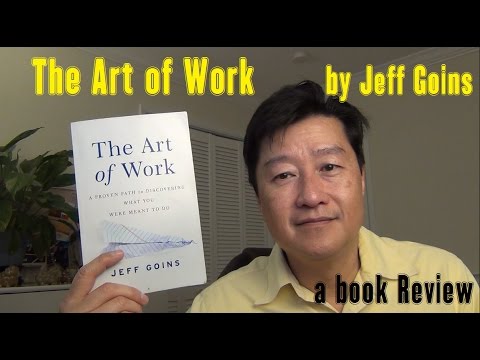The art of work is the lighthouse to those who are lost in finding meaning in their lives. This book will give you some hints how to find your ways. This book is also a guidepost to those who think they’ve achieved success and met their callings. This book will prod you to rise above it and continue to leave a legacy.
The author provide fitful examples to make his points. It’s wonderfully done. I came away so pumped up and convinced of working on my calling(s). I highly recommend this book. The book’s website is here.
Summary
The 7 Stages of finding your calling:
1. Awareness: Listening to your life
“The worst way to be happy is to try to be happy.” We need a reason to be happy. “A calling comes when we embrace the pain, not avoid it.” You must believe in that you’re called to something. To cultivate awareness, you must be willing to act, to step out and see what happens. Opportunities always come to those with open eyes. “You do know what your dream is. You’re just afraid to admit it!” Write down and note the significance of every major event in your life. It takes commitments. The risk of not committing is greater than the cost of making the wrong choice. Because when you fail, you learn. Walt Disney decided to become a cartoonist when he got injured and stayed at home for 2 weeks.
2. Apprenticeship: The teacher appears when the student least expects
Traditionally, it took 10 years to go from an apprentice to a “journeyman” to a master. You cannot master a craft on your own. Accidental apprenticeship are everywhere; you must listen to your life to recognize them. There lies Ginny Phang’s story in going from a unwed pregnant woman abandoned by her boyfriend and her own family to becoming a doula (pregnancy coach) and running her own business. Her story is a testament to the ability of human spirit to endure and the power of community. We never find a calling on our own; we all need help.
3. Practice: When trying isn’t good enough
Excellence is a matter of practice, not talent. “Even the most gifted people do not have what it takes to succeed without the right attitude and years of ‘deliberate’ and ‘deep’ (resulted in failures) practice.” 3 Requirements for “deliberate” practices: 1) Requires a context: time and energy from the individual as well as trainers, 2) Not “inherently motivating” activities – not enjoyable, 3) Cannot be done a very long time without leading to exhaustion – needs to push yourself to the point of sheer exhaustion. Often the only way to know the difference between a hobby and a calling is to put yourself through the crucible of painful practice. Accidental Apprenticeship is such that “long before a person is ready for his calling, life is preparing that person for the future through chance encounters and serendipitous experiences.” Seizing the “lucky” moment and doing something about it may be the difference.
4. Discovery
The process of finding and claiming your calling is a “journey,” like the bible story of Samuel, who had a “transcendental encounter” with God. The three stages: 1) hear it, 2) respond to it, 3) believe in it then leap or more like build bridges and keep moving toward something meaningful and life changing for yourself and the world.
5. Profession
On the way to meet your calling, you may encounter many failures when you’d need to “pivot.” Successful people and organizations like Groupon don’t succeed in spite of failure; they succeed because of it. “Pain is the great teacher and failure a faithful mentor.” Don’t turn a season of failure into a lifetime of failure by 1) recognize hardship as an opportunity to learn, 2) not to succeed in the wrong things, 3) be ready to make pivots along the way. Don’t ask “what if” but say “let’s.” Stop “dreaming” but start “doing.” Not all callings lead to successes or fame though.
6. Mastery
Living a “portfolio life” may be the way of the future. You don’t just have one job, you are all of these things that you do: fee work, salary work, home work, study work and gift work. Combining work, home, play and purpose in your portfolio life. “Mastery is something that goes beyond competence and skills. It means approaching one’s life as a creative work.” Stop trying to be famous and focus instead on trying to be successful. Try to reach the state of “flow” as Csikzentmihalyi described. Our responsibility is to use our gifts in challenging ways so that others can benefit – to be given away.
7. Legacy
Think of your work or calling as leaving a legacy to help others could make your work/calling more meaningful. No need to wait until your retirement. “Life has a funny way of teaching us that sometimes the most important stuff is the ordinary stuff. The smallest moments, the ones we think are insignificant, are the ones we will cherish the most.” Your calling is not about dong something good in the world but becoming someone good and letting that goodness impact the world around you. Success isn’t the final goal, legacy is. On the other hand, don’t let your calling consume you. Life is not a support system for your work; your work is a support system for your life. The author suggests to work hard and passionately, but acknowledge the limitation of what one life is capable of. In the end, success isn’t about what you do with your life but what you leave behind. Calling is about leaving a legacy that matters.
The book provides several questions and exercises in the appendix to help find your callings.

